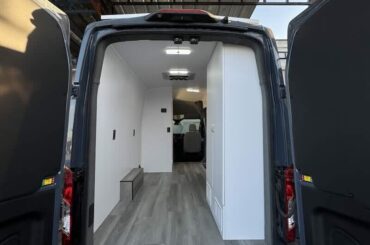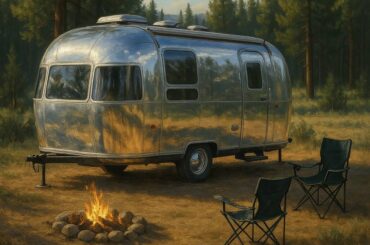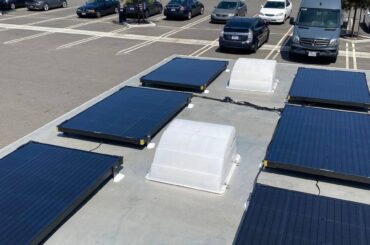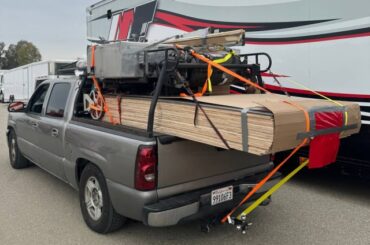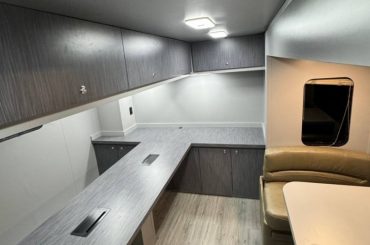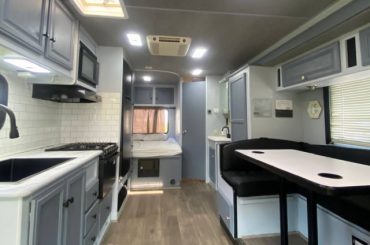When shopping for or learning about RVs, you’ll often hear them categorized into “classes”—each class refers to a different style and size of recreational vehicle. These classes help buyers and owners understand the various types of RVs available and which one might best suit their travel needs. The most common RV classes are Class A, Class B, and Class C, each with its own unique features, pros, and cons.
Let’s break down the different classes of RVs to help you understand which might be right for your adventures.
Class A RVs
Class A RVs are the largest and most luxurious of the RV classes. Built on a commercial bus chassis, they are designed to provide maximum space and comfort, often resembling a home on wheels. Here are some key features:
- Size: Typically 26 to 45 feet in length.
- Amenities: Full-size kitchens, bathrooms, bedrooms, and living areas; many include luxury features like washers and dryers, entertainment systems, and slide-out sections for even more space.
- Sleeping Capacity: Can sleep anywhere from 4 to 8 people, depending on the model.
- Ideal For: Long-term travel, full-time RV living, or anyone looking for the most comfortable and spacious RV option.
Pros:
- Spacious interiors with lots of amenities.
- Large storage capacity, both inside and in undercarriage compartments.
- Powerful engines capable of towing vehicles or trailers.
Cons:
- Expensive to purchase and maintain.
- Lower fuel efficiency due to size.
- Harder to maneuver in tight spaces like small campgrounds or city streets.
Class B RVs
Class B RVs, also known as camper vans, are the smallest of the RV classes. Built on a van chassis, they’re highly maneuverable and easy to drive, but they still offer essential amenities for travel.
- Size: Typically 16 to 22 feet in length.
- Amenities: Compact kitchens, bathrooms with showers, and convertible sleeping areas. Some models include pop-up roofs for extra headroom.
- Sleeping Capacity: Usually sleeps 2 to 4 people, making it perfect for couples or solo travelers.
- Ideal For: Those who want something small, easy to drive, and fuel-efficient while still having access to basic living amenities.
Pros:
- Easy to drive and park, even in urban areas.
- Better fuel economy than Class A or Class C RVs.
- Great for weekend getaways or short trips.
Cons:
- Limited space and storage capacity.
- Smaller living areas, which may not be ideal for families or long-term travel.
- Fewer amenities compared to larger RVs.
Class C RVs
Class C RVs offer a middle ground between Class A and Class B RVs, combining the space and comfort of a larger motorhome with the drivability of a smaller vehicle. They are built on a truck or van chassis with an extended cab, which often houses a bed or extra storage space.
- Size: Typically 20 to 33 feet in length.
- Amenities: Full bathrooms, kitchens, living areas, and often a sleeping area above the cab. Some models come with slide-outs for more room.
- Sleeping Capacity: Can sleep 4 to 8 people, making them ideal for families or small groups.
- Ideal For: Families or groups looking for a comfortable RV that’s easier to drive than a Class A but still offers plenty of space and amenities.
Pros:
- More spacious than Class B but more manageable than Class A.
- Extra sleeping area over the cab is a great use of space.
- Generally more affordable than Class A motorhomes.
Cons:
- Lower fuel efficiency than Class B RVs.
- Larger than Class B, making them more challenging to drive and park.
- Less luxurious than Class A motorhomes.
Other Types of RVs
Beyond the typical Class A, B, and C motorhomes, there are also towable RVs like travel trailers, fifth wheels, and pop-up campers. These don’t have an engine of their own and need to be towed by a truck or SUV.
- Travel Trailers: Ranging from compact to large, they’re a versatile option for families who prefer to tow their living space with a separate vehicle.
- Fifth Wheels: Larger and more luxurious than standard travel trailers, fifth wheels provide a lot of living space and are often equipped with multiple slide-outs.
- Pop-Up Campers: Lightweight and compact, pop-up campers are easy to tow and expand when set up, making them a great option for beginners.
Custom-way: Helping You Choose the Right RV Class
At Custom-way, we understand that choosing the right RV class can be challenging. Whether you’re looking for a spacious Class A motorhome for full-time living or a compact Class B camper van for weekend trips, our team is here to help you make the best decision. We offer expert advice, maintenance services, and upgrades for all classes of RVs, ensuring that your vehicle is road-ready and tailored to your lifestyle.
- Need help deciding? Contact Custom-way for professional guidance on finding the perfect RV for your needs.
- Already own an RV? We provide specialized maintenance and repair services for all classes of RVs to keep your vehicle running smoothly year-round.
Conclusion
Understanding the different classes of RVs is key to making an informed decision when purchasing or renting an RV. Whether you’re seeking the luxury of a Class A motorhome, the maneuverability of a Class B camper van, or the balance of space and comfort in a Class C RV, there’s an option out there for every type of traveler.
Custom-way is here to help you maintain, repair, and upgrade your RV—no matter what class it belongs to. Contact us today for expert RV services and advice!

